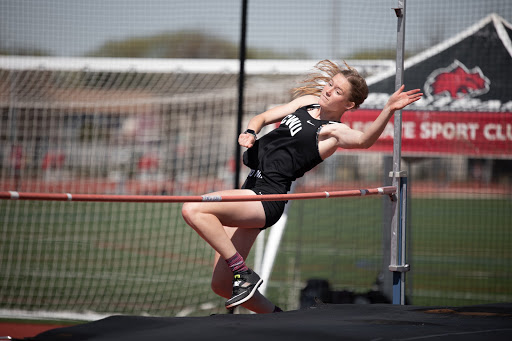Fall sports expected to return on time next year

Courtesy of CWU Athletics | McCall Dechenne
May 26, 2021
Director of Athletics Dennis Francois said with classes returning to in-person instruction, sports may be able to start on time in fall with very few restrictions.
Last fall, CWU, along with others in the Great Northwest Athletic Conference(GNAC), decided to push fall sports back to spring due to pandemic concerns. However, with restrictions being lifted and vaccines becoming available, fall sports are looking to return to their pre-pandemic function.
“As of right now with the announcement from our university of being fully back in person in the fall with no physical distance anticipated, we are operating in that same assumption that we will [be] ‘back to normal’ as we proceed with our fall sports,” Francois said.
Francois said the football team will be reporting to campus as early as the first week of August, followed by women’s soccer and volleyball the following week. Cross country reported athletes will start practicing for their upcoming seasons towards the end of August.
It’s unknown what COVID-19 protocols will be put in place during the time the sports begin practice, and all of this is subject to change depending on how the country and state are handling the pandemic at the time, according to Francois.
Francois also reiterated that the mandate for the vaccines for all students, faculty and staff will be very important as the insurance companies that pay for weekly student athlete testing will probably revoke those payments due to the vaccines available.
“We couldn’t afford to pay cash for all the testing that we did, because we anticipate once the vaccine is fully approved by the FDA, which we anticipate will happen over the summer, the insurance companies will stop paying for testing,” Francois said.
Francois said the athletic department will have to have discussions on how to handle student athletes who don’t want to receive the vaccine.
“So that is something we have to discuss as an athletic department for those people who have their reasons for not getting the vaccine,” Francois said. “How we are handling those individuals. Are we going to allow them to compete? Are we going to require that they do their own COVID testing to allow them to compete? All those things are to be determined, but like I said we are encouraging our student-athletes and staff to get fully vaccinated so we can get back to some resemblance of normal.”
Francois said it will be difficult to handle the combination of both vaccinated and unvaccinated student athletes throughout an entire sports season when it comes to protocols.
“It’s going to be challenging I think if we have people who are not vaccinated,” Francois said. “How do we protect those people who aren’t vaccinated and how do we protect those people who are vaccinated? Are they still going to have to wear a mask and do all these things? What will we allow? It might be the NCAA [protocols] it might be our conference [protocols], will it be our universities [protocols]? What will we allow in terms of unvaccinated individuals and how we are going to accommodate for that.”
Francois said they are anticipating the return of fans to games this fall.
“Of course it will have to be whatever our university’s protocols are and that might be screenings still that might be masking, but we sure hope not,” Francois said.
Francois said a mandatory COVID-19 vaccine meeting for all returning and new student athletes was held on May 19 to get information and ask questions about the COVID-19 vaccines from local health experts.
“We really want people to get educated and get their information about vaccines from medical professionals and not twitter where there’s a lot of misinformation out there,” Francois said. “We want our people to hear that information from medical professionals.”

